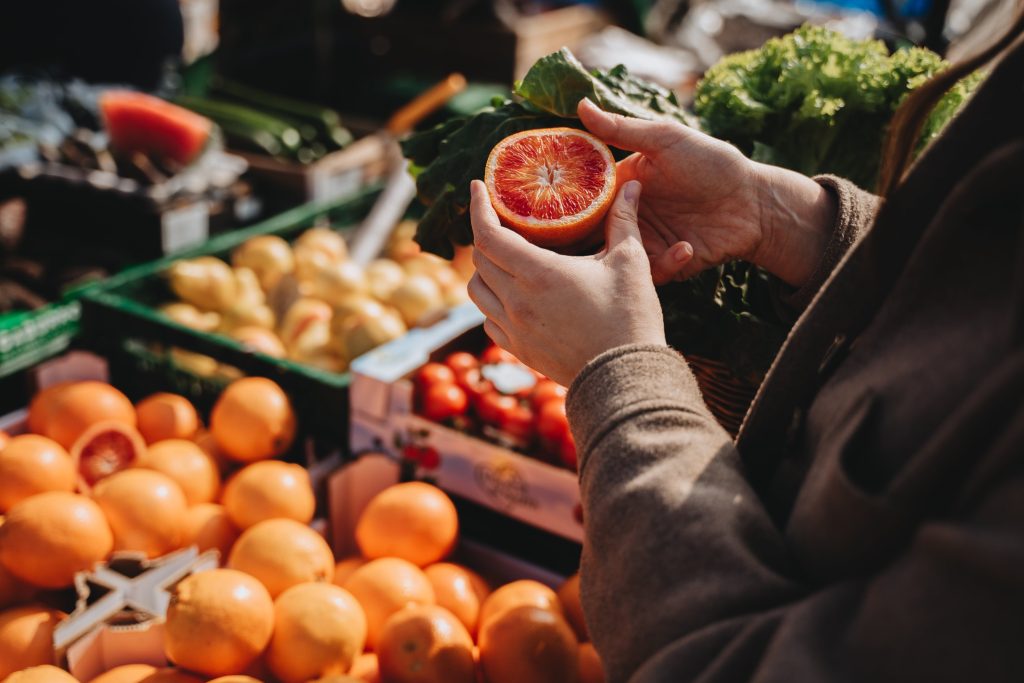Budget conscious Britons are being offered 24 tips for saving on their food shop.
The frugal experts from online healthy food retailer MuscleFood.com have put together top advice for keeping costs down at the supermarket.
They suggest always shopping with a list, buying in bulk, checking the lower shelves and buying frozen veg and berries.
Other tips include meal planning, using up leftovers, doing a store cupboard inventory and making good use of your freezer.
Ashleigh Tosh from MuscleFood.com said: “We all need to save cash in January and throughout the year. Food shopping is a massive outgoing so it is the obvious place to start when it comes to cutting monthly spend.
“There are tips in store – like checking the lower shelves where cheaper items are often placed, and buying frozen berries and veg to save cash and cut food waste.
“Other tips start at home, like keeping a close eye on what you have in, planning meals for a week or two and buying only what you need.
“If you have the time, meal prepping is a great way to avoid buying expensive ready meals or takeaways. And it means you always have a tasty meal in the fridge or freezer.”
Here are MuscleFood‘s tips for cutting costs on your food shop:
- Yellow stickers
Don’t be put off by yellow sticker items. You can pick up some good bargains. If they’re fresh and about to go out of date, pop in the freezer.
- Buy in bulk
Buying items in bulk can save cash. Look for big bags of food you use all the time or non-perishable items like pasta and rice.
- Check world food aisles
The world food aisles are a good place to check for spices, grains and condiments. They’re often a little cheaper too.
- Coupons & offers
Look out for any coupons and offers you can use against items you buy. If it’s something you won’t use or like, then it’s not an offer worth taking up.
- Use the freezer
Your freezer is your best friend – use it for leftovers, food about to go out of date and portioning up meat, fish and veg when you bulk buy.
- Leftovers
Never throw leftovers away. Use them for lunch the next day or freeze for when you want a quick, no hassle meal.
- Store cupboard / freezer inventory
Keep a regular check on what you have in your store cupboard and freezer. You’ll often find you have more than enough ingredients for a meal.
- Meal planning
Plan your meals a week or two at a time and stick to it. Before you shop for ingredients, check what you already have.
- Meal prepping
Set aside time once a week to prep meals and store in the fridge or freezer. Out of a big pack of mince you could make a tasty bolognese, chilli, lasagne and cottage pie.
- Buy seasonal
Shopping for seasonal fruit and veg can keep your shopping bill down. Keep an eye on whether people locally are selling excess fruit and veg during the growing season.
- Buy frozen veg and berries
Opt for frozen veg and berries – they’re cheaper, still packed with goodness and there’s less wastage.
- Make a list
Always make a list when you do the food shop – that way you’re more likely to buy what you need and not pick up random items.
- Don’t shop on an empty stomach
Never shop on an empty stomach. A rumbling tummy will lead you straight to the sweets, snacks and chocolates which will ramp up your spend.
- Utilise apps
Take advantage of apps where you can buy foods at the end of the day which are about to go out of date. You can often get a real bargain.
- Shop around
If you have the time, shop around for the best deals. You’ll be surprised at how some prices can vary.
- Grow your own
Think about growing your own. Even with a small garden you could try a few things. Salad veg does well in patio planters, and you can buy potato bags if you don’t have enough space for a row of spuds.
- Food swap
If you do grow your own, think about food swapping with other gardening friends so you have a steady stream of tasty produce.
- Sell by / expiry dates
Don’t be put off by expiry dates – your freezer is your best friend.
- Look on the lower shelves
Supermarkets will often put lower cost items on the lower shelves. Make sure to check them out and not just look at eye level.
- Herbs and spice cupboard
Make sure you have enough herbs and spices to make a standard meal stand out.
- Recipes from one item
Think about how many meals you can get out of one item. Cook up a chicken for Sunday lunch, use the leftovers for a curry and boil the carcass for soup stock.
- Dump bags
A dump bag is when you prep the ingredients for a meal then freeze. Make sure you label and when you’re ready to use, defrost and put in the slow cooker. It’s a great option when you bulk buy or have leftover ingredients prepped.
- Recipe by ingredients
If you haven’t got much in, have a look for a recipe that uses those, or similar ingredients.
- Loyalty cards
Do take advantage of loyalty cards. The supermarkets are becoming increasingly competitive and there are bargains to be had.


